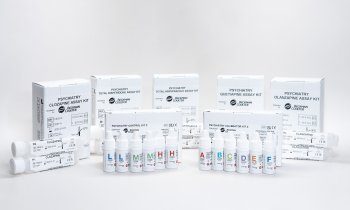ISICEM 2009
Belgium
24-27 March 2009
About 5,000 physicians and healthcare workers interested in intensive care and emergency medicine will gather in Brussels for the 29th ISICEM.

In advance of the event, Jean-Louis Vincent, of the Intensive Care Department at Erasme Hospital, Université Libre de Bruxelles, Belgium, outlines this significant event in the intensive care calendar
“Offering a programme of varying session formats, the ISICEM aims to provide participants with the latest clinically-oriented advances in the care of critically ill patients. With sessions held simultaneously in nine meeting rooms, the four-day meeting promises something of interest for everyone who attends! In addition to the scientific sessions, more than 510 abstracts of original work will be presented in the form of posters, offering a glimpse into the future of intensive care research. There is also an accompanying scientific exhibition involving some 100 companies, in which participants can view the latest technological and therapeutic advances in their particular field of interest.
Intensive care medicine is still a relatively young specialty and is continuing to evolve. One important part of this ‘growing up’ process has been the realisation that many of the interventions and monitoring systems widely used in the ICU are not actually supported by any high quality evidence, and that, in addition to evaluating potential new interventions, studies need to be conducted to fill the many gaps in evidence that surround current daily ICU practice. Perhaps a particular focus of this year’s meeting, then, will be the presentation and discussion of the results from some of the recent large, high quality trials that have (re)assessed established and new interventions and management strategies. Such studies include the NICE-sugar study from Australasia and Canada, which assesses the benefits of tight glucose control, the results of which will be presented during our Opening Session. These results have been eagerly awaited after the positive studies by Van den Berghe and colleagues, but the negative VISEP and Glucontrol studies.
Other important results to be presented include data from studies of rFVIIa in polytrauma patients, of tissue factor pathway inhibitor in patients with community-acquired pneumonia, of higher versus lower flux haemofiltration, of extracorporeal support with the Molecular Adsorbent Recirculating System (MARS) in acute liver failure, of vasopressin in paediatric septic shock, of prone ventilation in ARDS, of early versus late tracheostomy in patients with prolonged mechanical ventilation, and of long-term follow up of ICU patients. Visit our website (www.intensive.org) for the latest programme details.
The ISICEM provides essential updates on all aspects of clinical care and patient management enabling you to remain at the cutting edge of intensive care medicine. The opportunity to meet with an internationally renowned faculty of experts in this field and to share ideas and expertise with colleagues from around the world makes this an unforgettable learning experience.
We look forward to seeing you at the 29th ISICEM! ”
01.03.2009











